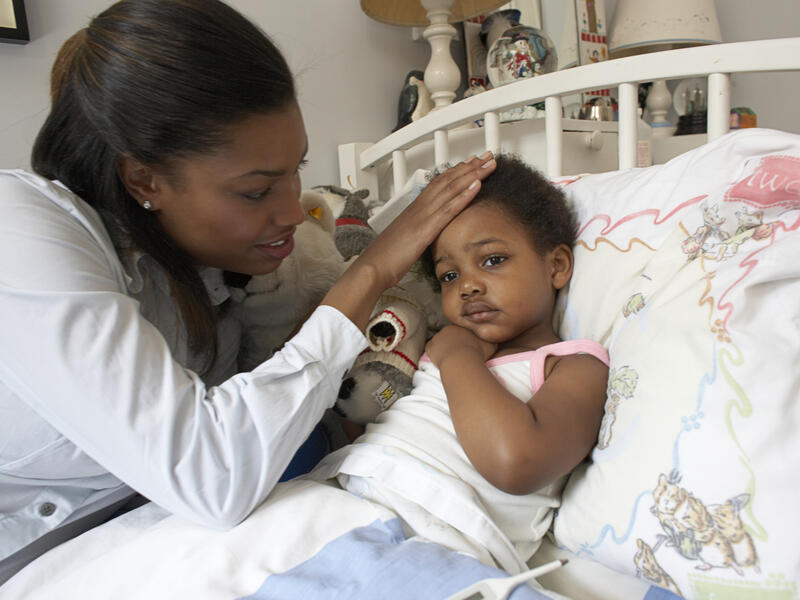Medical experts are already calling this a bad year for respiratory viruses, and they anticipate more illness into the winter months.
Hospitals are seeing an influx of young patients hospitalized with respiratory illnesses including RSV (respiratory syncytial virus) and influenza, according to Sanford Health Chief Physician Jeremy Cauwels, M.D.
RSV is most dangerous in children under 18 months of age and can range from cold symptoms to more serious inflammation in the lungs.
Stephanie Hanson, M.D., who specializes in pediatrics, is seeing more severe cases on the rise at Sanford in Fargo, North Dakota.
“Anytime we see high rates of community transmission of respiratory illness, we worry about our patients,” Dr. Hanson told Sanford Health News. “This particular virus is known to cause difficulty breathing in infants and toddlers, dehydration, prolonged illness and can result in hospitalization.”
More: Is it a cold or RSV? Know when to call your child’s doctor
Why we’re seeing more illness this year
We learned a lot about infection prevention during the pandemic.
Dr. Hanson said to prevent the spread of a new virus, our social distancing measures, masking and isolation while sick, kept away other illnesses as well.
“Now that many of us aren’t practicing all of those measures in our day-to-day life, it opens the door for more infection to spread,” Dr. Hanson added. “Many of us think that’s why we’re seeing an increase in cases this winter.”
They advise, our best defense against respiratory illness includes the following for any age group:
- Vaccination for COVID-19 and influenza
- Good hygiene like handwashing
- Proper nutrition
- Adequate sleep
Vaccines effective for kids and adults
Vaccines can help prevent or lessen the severity of illnesses like flu and COVID-19.
“These vaccinations are highly encouraged by pediatricians,” Dr. Hanson added. “They are safe and effective at either preventing illness or serious complications.”
Dr. Cauwels said the vaccine is just as important for adults, specifically older or high-risk populations.
“We recommend the flu vaccine in all of our older patients, especially if you happen to live in a place like a long-term care facility with many older people around,” he said. “We’ve seen in years past that influenza can travel around that group of people very quickly.”
“Doing everything that you can to protect yourself from getting the disease and landing in the hospital is absolutely key.”
Additionally, pregnant women are encouraged to get the flu and COVID-19 vaccines to pass the protection to their growing baby.
“I think the flu vaccine, especially in pregnancy is one of those times where you don’t want to put your body through additional stress,” Dr. Cauwels explained. “Being pregnant is stressful enough and so making sure you’re immunized to prevent any illness while you’re pregnant is a very important tool so baby has the least eventful, healthiest pregnancy they possibly can.”
When to seek care
Many kids can recover at home from mild illness. But how do you know whether it’s mild or severe? Contact a health care provider if your child has any of the following:
- Prolonged fever
- Difficulty taking fluids
- Decreased urine output
- Labored or fast breathing
If you have questions or concerns about the vaccines or respiratory illness, contact your primary care provider.
Information in this story was accurate when it was posted. As the COVID-19 pandemic changes, scientific understanding and guidelines may have changed since the original publication date.
Learn more
- Infant colds: What’s normal and what’s not
- Pregnant or breastfeeding? CDC says get COVID-19 vaccine
- Your top 10 Googled questions about kids and the flu
…
Posted In Children's, COVID-19, Family Medicine, Fargo, Flu, Immunizations, Pregnancy

